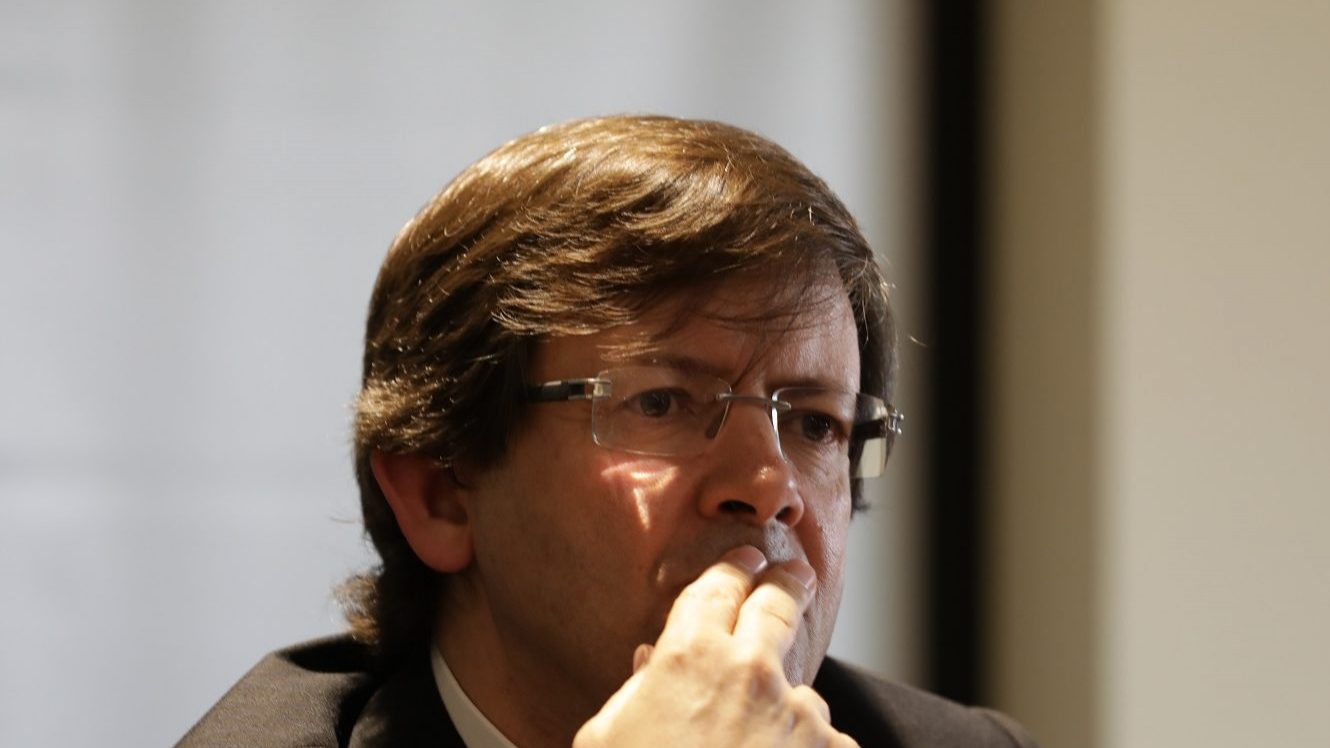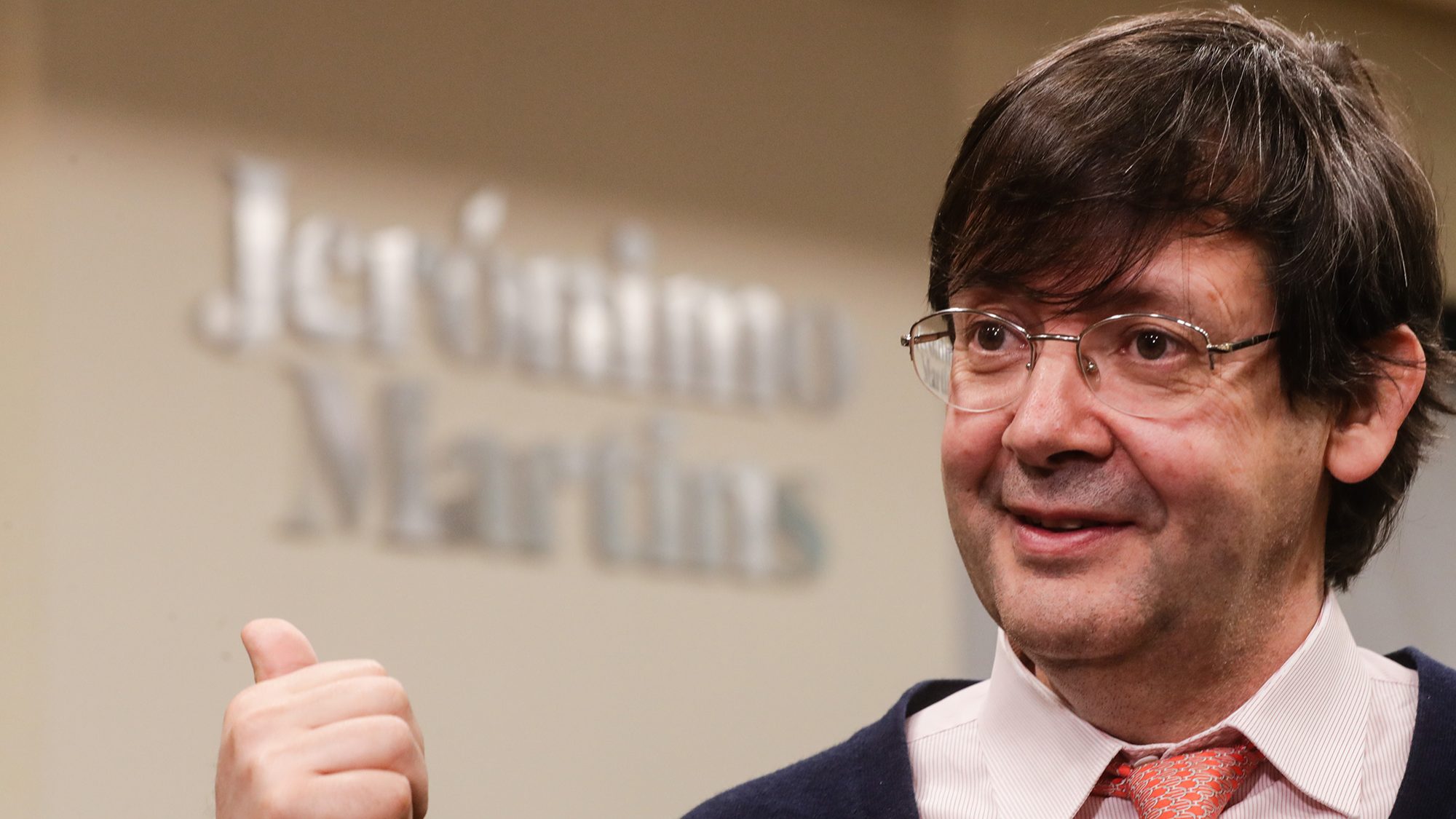Government’s food price measures ‘tardy’, says JM CEO
Pedro Soares dos Santos was speaking in Lisbon at the press conference on the results of the Jerónimo Martins group in 2022.
The chairman and chief executive of Jerónimo Martins said on Thursday that the prime minister’s intention to take measures “comes late” when there will be a “certain easing of inflation”, perhaps even to “cost less”.
Pedro Soares dos Santos was speaking in Lisbon at the press conference on the results of the Jerónimo Martins group in 2022.
Asked about Prime Minister António Costa’s declarations on Thursday, he said that first, it was necessary to see specifically what this was all about and that any negotiation in this area was carried out within APED – the Portuguese Association of Distribution Companies.
On Thursday, the prime minister announced that his government would work with the food chain to ensure a reduction in the price of foods, even the possibility of lowering VAT.
On 10 March last year, at the press conference to present results, Pedro Soares dos Santos defended an easing of the tax burden in the face of rising costs and inflation.
Asked whether these possible measures are still in time to mitigate impacts, the chairman of Jerónimo Martins said that they were late. “These measures come late”, at a time “when there is going to be a certain easing of inflation, they have come late, and so maybe they come at that time to cost less”, he said.
This is because “I think the European Union has again announced that public debt has to be controlled, the deficit has to return to previous figures” and, as it was not resolved in the past, “in times of fat cows”, it will now have to be done “in times of lean cows”, he added.
“And there’s only one way to resolve this, which is to collect more taxes, the rest is just talk”, he concluded, because “the state doesn’t generate profits, it only knows how to collect taxes”.
And, therefore, “this is going to happen, and I think we are going to have a bad time again this year with the story of interest rates”, the chairman of Jerónimo Martins said, who had already expressed concern about interest rates and the level of debt exactly one year ago.
“Look at what is happening in the banking sector: we are again in a cloud we don’t understand,” he warned.
“Without profits and money, I know how to survive because if I depend on the banks, we don’t know what will happen,” the manager warned, pointing to what happened recently with Crédit Suisse.
This story of Crédit Suisse and UBS “is not well told, maybe if you talk to António Horta Osório, he will tell you everything that happened there and why he had to leave”, Pedro Soares dos Santos told journalists.
In his opinion, the world will still experience “many uncertainties”, and we need to pay attention to what the US Federal Reserve (Fed) is doing.
“One thing that is sacred to me in this business is to generate cash so as not to depend on banks,” Pedro Soares dos Santos concluded.
On Thursday, the prime minister announced that his government would work with the food chain to ensure a reduction in the price of foodstuffs, even by lowering VAT.
In the parliamentary debate on general policy, António Costa stressed that the government and the food chain have the “common goal” of reducing and “controlling inflation on foodstuffs”, recognising that their value is “clearly above what is the average of inflation in Portugal and even above what happens in other European countries”.
“Let’s wait and see what has been announced,” he said.
“It is with APED that this negotiation if there has to be one, will be done,” he concluded on the subject.
In the case of the reduction of VAT on some products in Poland, the CEO of Polish chain Biedronka, Luís Araújo, said that in that market, the measure “was intelligent”.
It is an “effective measure by the Polish government that has effectively conveyed solid value for Polish families and persistently continues to reduce the advance of inflation,” he continued, estimating that inflation would be “around four points higher if it had not been implemented.
Polish families, Luis Araújo added, “paid less than one billion zloty in VAT that they would have paid” if the Polish government’s measure had not been implemented.
“All prices were reduced in direct and equal proportion to the reduction in VAT, it doesn’t mean that this will stop inflation, there are other factors that explain the evolution of prices over the years, what can be guaranteed (…) is that in Poland the value of the VAT reduction was passed on in full to families,” he added, stating that it was a “very positive measure”.
In turn, the General Director of Pingo Doce, Isabel Ferreira Pinto, said that Portuguese families are experiencing difficulties.
“If the government goes ahead with this measure, it should have done so more than a year ago, as happened with the Polish Government”, and the Spanish, she added.
“To say that in Spain the decrease in VAT, which is 5%, in Portugal it is 6%, has no impact on families is not true,” she stressed.
Now, inflation in prices “is that it was higher” and “if you evaluate prices in Spain, due to this decrease in VAT, rose for sure less than they rose in Portugal and that helped families,” she added.
“I think the government was the only agent in the value chain that did not make any kind of decrease in its revenue last year,” Isabel Ferreira Pinto pointed out.
Therefore, “the time has come to take measures to help Portuguese families, and we, for sure, being a good measure for Portuguese families will fully reflect the decrease in VAT in product prices”, she concluded.


